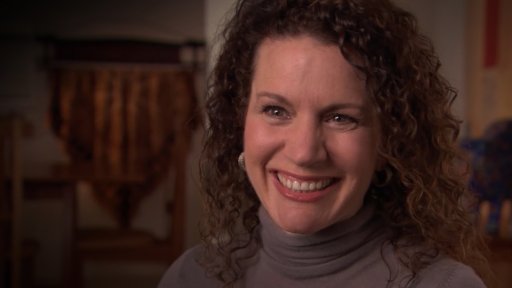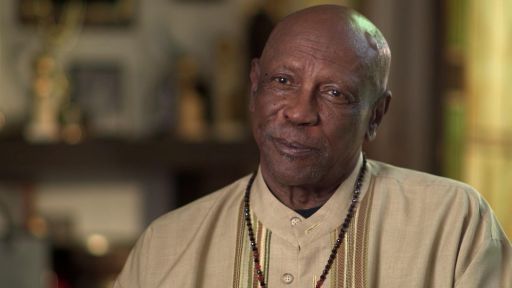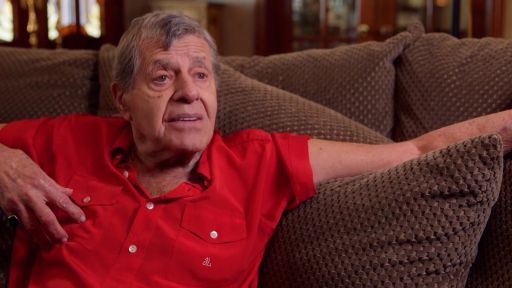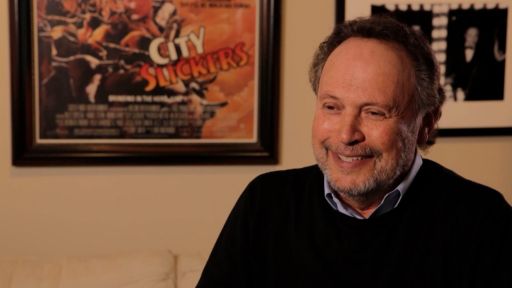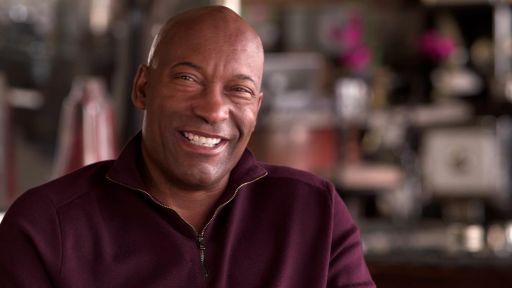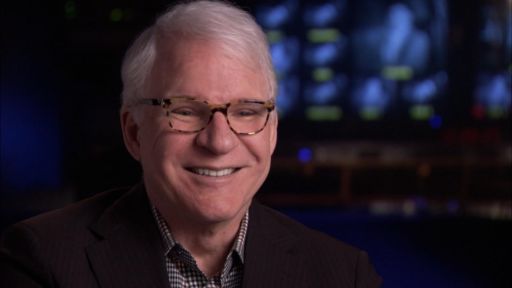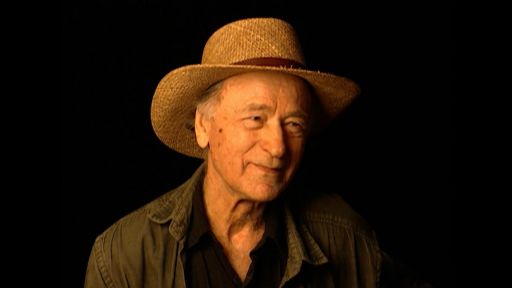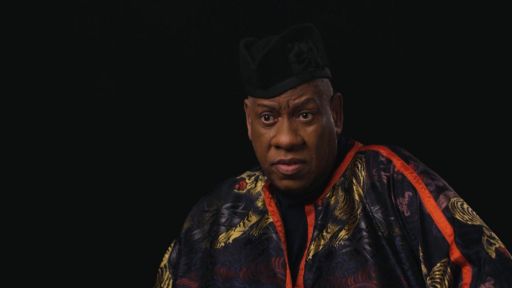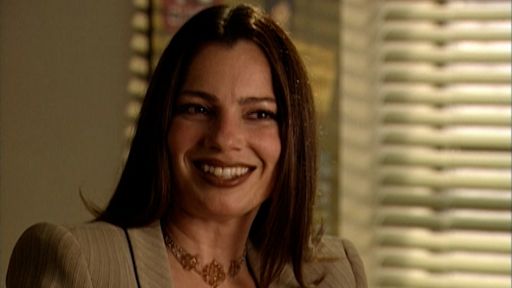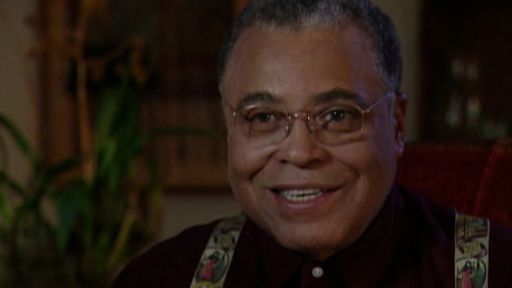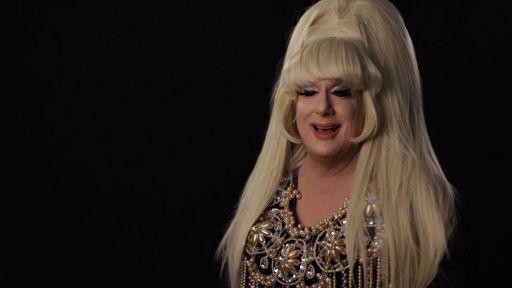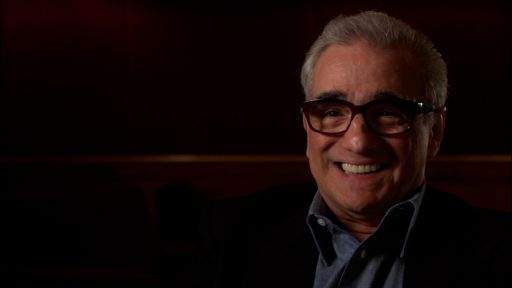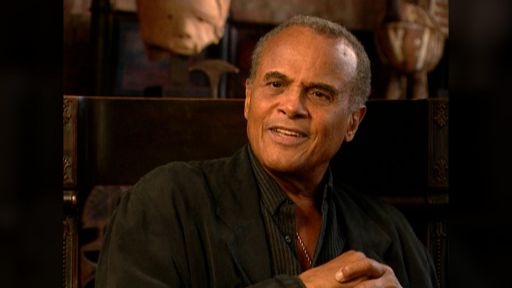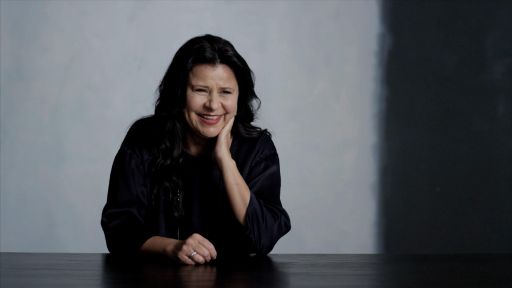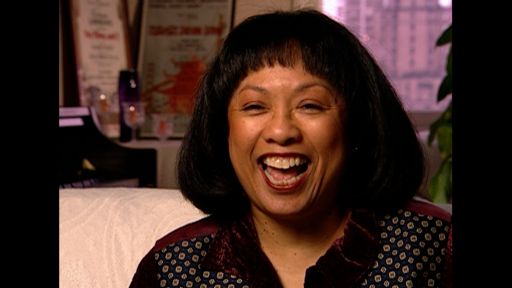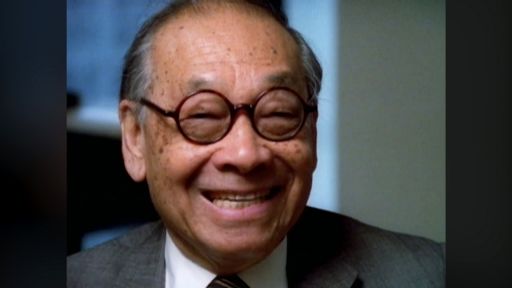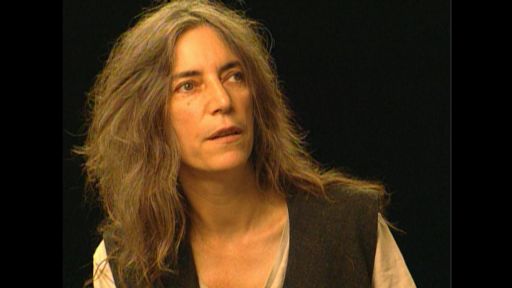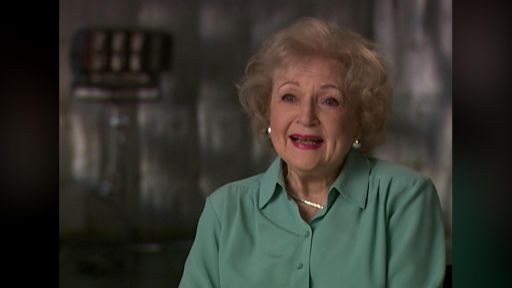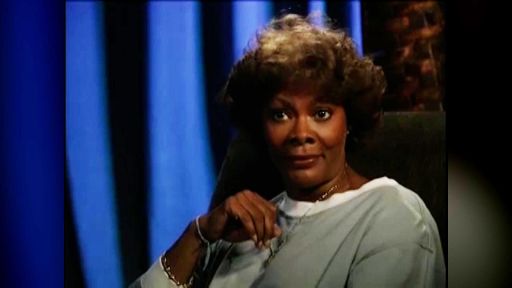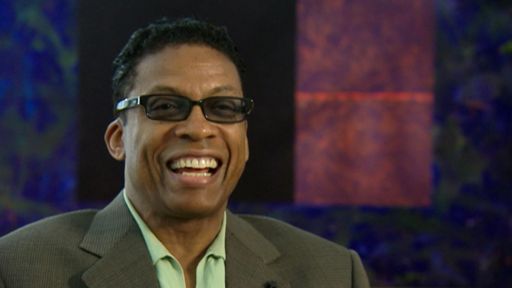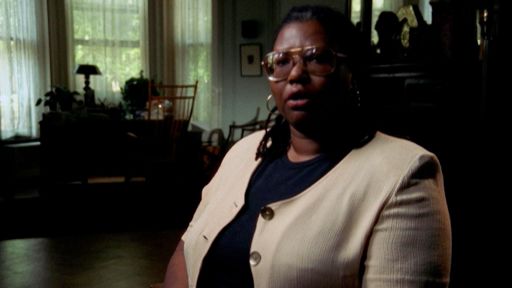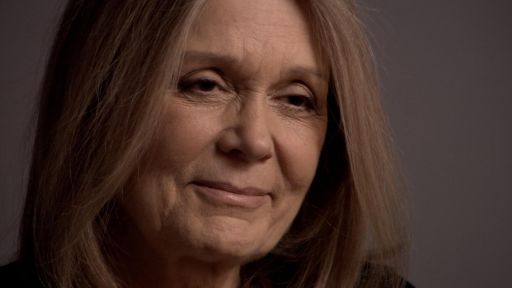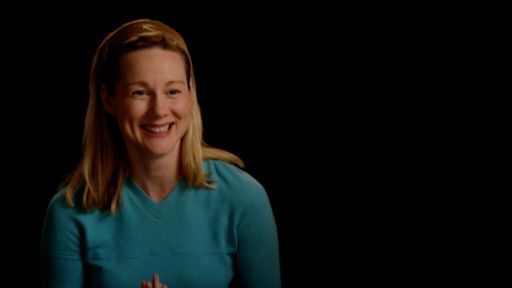TRANSCRIPT
- He was my agent at first.
And everybody thought, "Oh man, this guy's an amazing agent."
You know, he can get to any, he'll do any, you know, he does all kinds of things.
He was like a magical, kinda magic worker, you know?
- [Interviewer] How was he a magic worker?
- I don't know.
You'd have to ask him.
It was like that.
He was the only one who could explain it, that he was a magic worker, but you couldn't figure out why.
But he did a lot of things.
He got a lot of things.
He had a way of, David can figure out what it is to say to anybody to let them know that he remembers what it is about them that they don't want anybody to know.
And he uses that, you know, just drops it here and there.
But it's not like, it's funny.
It's not like malicious and he enjoys it.
He has fun with it.
And back then he had more fun with it because it was so innocent, you know?
And he wasn't as powerful.
So when he did it, it was like, he's a guy on the way up.
He's like a rebel, you know?
Nobody could believe it, what he was doing, but he was brilliant, you know, and he just was able to remember all the little nuances about everybody and he would bring them up at just the right time, you know, with that glimmer in his eye, you know.
Very unique individual.
- [Interviewer] And that, of course, was that tied in with his negotiating power?
- Everything was tied in with his negotiating.
Power or, I don't know, I wouldn't call it negotiating power.
I would call it negotiating ambience.
He just surrounded the negotiation with an ambiance, much like Elliot does the same thing in his own way.
There's always a time when Elliot will crack some kind of a joke that just breaks the ice and everybody starts laughing and relaxes a little bit.
But if you relaxed with David, that's when he'd throw in one of these things.
He'd let you know that he's still there, you know?
And it was, you know, not maliciously, but dangerously, enough to let you know.
- [Interviewer] Let's talk a little bit about the Geffen-Roberts office.
What'd it feel like?
What was the atmosphere?
What was the vibe when you went in there?
How did they interact with each other?
How were they different?
- Well, you know, it was just like, you know, bang, bang, good cop, bad cop, back and forth, funny, funny, funny.
Everybody's laughing.
We're having a good time.
Everything's going really fast.
Geffen would love to get people on the phone and talk to them so that everybody could hear what he was saying to them.
It was like, there was never anything, you know, there was a lot of showmanship.
It was all a big show and he was always on stage and it was putting on a big show.
It was all a lot of fun.
It was a lot of fun.
That's what it was.
But in doing that, he made a lot of people happy and he made a lot of deals that were great and he manipulated a lot of people and played them like a harp, you know?
I mean, he just did it and it was a joyous thing the way he did it.
- [Interviewer] Did you hang out in the office a lot?
- Yeah, I was there quite a bit.
- [Interviewer] Yeah, 'cause we've been trying to get a sense of what it was like to hang out in that office.
- It was a bunch of hippies, you know, hippies and, you know, everybody fast moving.
You know, we were hip.
Everybody was great.
We were, you know, we were full of ourselves.
We thought we were the cat's meow.
- [Interviewer] David was just smart about a lot of things.
I think he didn't want the offices to be fancy and he had the least fancy office 'cause he said, "Now nobody can complain about not having a good office 'cause my have the worst office."
It was pretty smart.
- I think he just wanted to, I think he wanted people to relax.
I don't think he's into impressing people that way.
That's not, you know, he saved that for his house.
That was his own place.
But his place of work where he interacts with people, he didn't wanna, he wasn't a big chair, big desk, you're little, I'm tall.
My chair is taller than you.
He's not that kind of a guy.
He's like, I'm already inside your head.
I know everything that you think I know, and I know everything that you don't think I know.
And I could be your friend or I could be your enemy.
That's who- - [Interviewer] And you guys were friends?
- Absolutely.
- [Interviewer] Did you play songs for him?
- Yeah, I played songs for him all the time.
- [Interviewer] How did he respond to you on a music- - His favorite song was "On the Way Home."
And he loved it as soon as he heard it and he remembered it.
He remembered the first time he heard it and he talked about it.
You could tell that his musical taste was, he wasn't like a connoisseur of music.
He wasn't like a aficionado of music, but he loved music like an innocent person loves music.
- [Interviewer] And he trusted those instincts?
- He was a businessman in that respect.
I don't think that, you know, it was like he heard great music and he said, "I'm gonna make this artist happen."
I don't think that was it.
I think if he liked the person, then he would make it happen.
And he knew the music was happening and some music he liked himself.
But I don't think he was like a musical guy that went around finding genius music and then promoting it.
That wasn't the way it happened.
He was a social guy.
He still is.
- [Interviewer] Well, he could be really tough.
I mean, Jackson told us about one time he was yelling at somebody and he said, you know, "If you don't book Jackson Brown, you'll never see Neil Young again."
He was a tough negotiator in that sense.
- Eh, I don't buy it.
You can call it that.
But he was playing his cards.
He was acting.
He was doing what he knew he needed to do to get to their end result.
It wasn't a meaningful thing.
He wasn't talking about me and Jackson.
He was talking about A and B and the way, the balance of the gold.
You can have this but you can't have that.
If you don't take this, you can't have that.
The cultural impact has to do with the music.
And David's impact had to do with the art of making the deals.
So the cultural impact of a deal maker is a different thing.
And it's not nearly as romantic and as easy to get, you wrap your arms around as the cultural impact of music.
- [Interviewer] It's kinda like the man behind the curtain making things happen.
- Yeah, kinda like that.
- [Interviewer] Why do you think people care about what David thinks?
Why do so many people go to David and ask for his opinion?
Why does he have that power?
- He's interesting.
He, you know, it's just interesting.
He has like, he always still has all of this knowledge about everybody and all the way things work and who's what and where they sit compared to who and who's got what on who and who wants to be who.
And all of these interrelated, you know, like, I want this and I can't get that, but so and so has this and these are, this is its strengths and this is the weaknesses, but if this guy over here and that guy, you put them together, there's gonna be like fireworks.
So these two people over here, you put them together, it's gonna be a success.
All that stuff, he's got that dialed.
That's why people wanna talk to him.
He had so much fun doing these things.
Even when he was crying and even when he was performing that he was so upset and so pissed off and yelling and screaming and hanging up the phone and throwing things and yelling at people.
"I'll never talk to you again, I'll never, " then he'd hang up the phone and (laughs) that worked.
You know, I got that adjusted, you know, but the emotion would just, it's not there as soon as he turned it off, you know?
And it wasn't like he manipulated it.
It just was natural.
He knew how to perform to get things done and to do.
That's the way I view him.
I'm only one guy, but I don't think it had anything to do with me.
And I don't think that he saved my ass.
I don't think he saved any artist's ass.
I don't think, you know, and every, a lot of people will think when they look at it from their perspective, he was very important to their success.
But they were incidental.
They just happened to be there when he was doing what he did.
And they played their parts.
- [Interviewer] What did the artists say to you about David selling Asylum?
What was the reaction?
How did people feel about it?
- I don't know anything about it.
- [Interviewer] So that wasn't a subject?
- Didn't make any difference.
- [Interviewer] There was some upset about it.
- Well, you know, he moved on.
He was finished with Asylum and the artists, you know, there you go.
You know, I have nothing to say about that.
And the artists who gotta take care of themselves, that's what David was doing.
It's not like David's their mother.
- [Interviewer] Did he ever talk to you about it?
- I mean, they were free to go wherever they wanted to go as soon as their contract was up.
They made a deal with a record company.
They didn't make a deal with a person.
It's just, you know, they didn't have David to talk to.
- [Interviewer] So you think people were- - They could still call him, but it wasn't the same 'cause he really didn't have a stake in the game 'cause he wasn't on that stage anymore 'cause he wasn't performing there.
He obviously was an artist because the stage didn't matter.
He just kept changing elevations, you know.
- [Interviewer] What made you decide to sign with Geffen Records?
- You know, I think I was, I think Reprise was just a, you know, I felt like actually what it is is it was a mistaken conclusion that I came to that because I wasn't doing as well as I was doing before that it was the record company's fault, when actually it wasn't.
So that's why.
- [Interviewer] And what were you hoping that Geffen Records would do?
- Whatever it was that Reprise did when I was doing well.
That's another mistake, that I was thinking that it had something to do with them.
It has nothing to do with them.
- [Interviewer] So you don't think that he actually in any way felt like he needed you to make more- - No, he really, he needed anybody to do anything.
He needed the artists that he'd bought to perform up to their maximum where he thought they could get to and unluckily for him, that never happened.
Even though the artists were performing up to their maximum, delivering everything that they had, it wasn't what the public was looking for.
So David was not successful in that respect.
And perhaps his mistake is not seeing that he was guiding artists through different periods and doing a good job of it and he was more concerned with the fact that in the public eye, that he seemed to be failing.
But it wasn't because of anything else.
It was because he had some bad lines on stage.
He flubbed his opening.
He flubbed his closing.
He forgot the words.
He really forgot what he was doing and he screwed up.
He was so full of I'm great that he didn't think it through, which any great artist will do.
Anybody that goes through this is gonna make these ugly mistakes and they never forget it.
So, yeah, he took it personally.
He had a bad night in front of a lot of people.
It's like a bad performance.
You know, Judy Garland had some awful performances and maybe she was drunk on her ass, but for whatever reason, the greatest artists of all time have all had bad nights.
So this was a bad night.
But I really, but I was wrong, too.
I didn't need a place to go.
I already had a place.
They were taking care of me.
I was doing what I do and it wasn't successful and in a commercial way, and that doesn't matter.
That means nothing.
That's one more step down the road.
Every once in a while things are gonna work great and people are gonna love it and fantastic.
Everybody buys it.
You're great.
And then a couple of days later you're, you know, you've had it again.
You know, and it just goes up and down.
But you can't worry about that.
It's all an accident.
If you're truly doing what you wanna do, then you don't care about that.
And if you're truly a manager managing somebody who wants to do an artist that is truly creating, then you don't care either.
You just wanna make sure that each piece is presented in a way that is apropos to that piece, you know?
It gotta be presented in a way that makes sense, that respects the piece for what it is.
Doesn't try to sell it as something it isn't, key thing, and just respects it for what it is.
Don't try to make everything, you know, be the same and be a big hit.
That's not gonna happen.
Longevity doesn't work that way.
I think he had fun with everything he did and that's why he did it.
I think he did it because he wanted to do it.
- [Interviewer] And what is it he wanted to do?
- Whatever he felt like doing.
- [Interviewer] But as of- - I don't know what he wanted to do.
I know he did what he wanted to do though, and he had to decide he wanted to do it.
But I don't know the motivation.
I don't know necessarily that he made deals for the Eagles because he thought the Eagles were the best thing since canned beer came out, or whether he thought that he was making the deals for the Eagles because he wanted to make the deal and he wanted to.
To him, it may have been more like a move on a Monopoly table.
It might've been a gamble.
It might've been some kinda manipulation.
It might've been some negotiation that he just wanted to do with somebody who he wanted to negotiate with, who he had something that he could deal with in the picture with it, in that ambience with that guy or a woman, whoever it was.
But I don't think it's, I don't agree with him being ruthless or being whatever he needed to be to get it done.
I don't think that was it.
I think he was just having a good time with it.
No matter how obscenely intense he seemed to be about it, at the end of the day, he was laughing his ass off about this stuff, even if he was telling everybody else that he wasn't.
It was all part of the performance.
He was, you know, a performance artist.
The art of the deal was his stage.
It's not about those other things.
He's a performer.
He's like Charlie Chaplin.
He's like one of those people, an artist.

